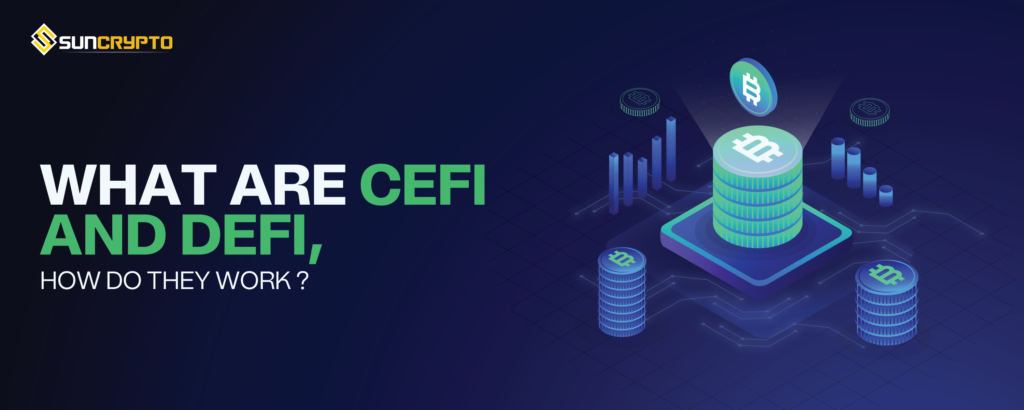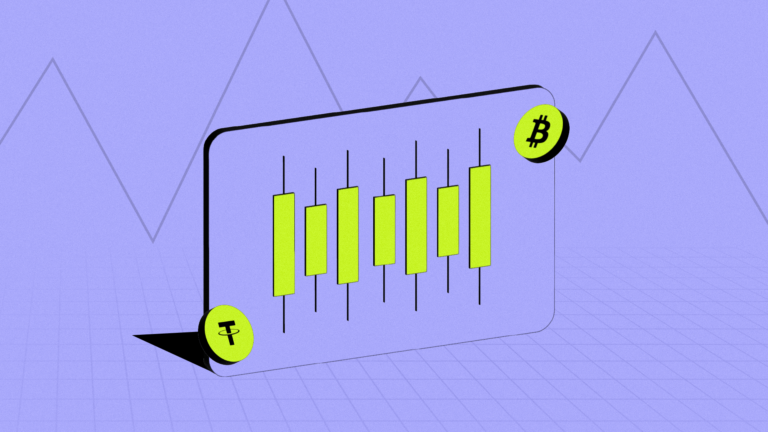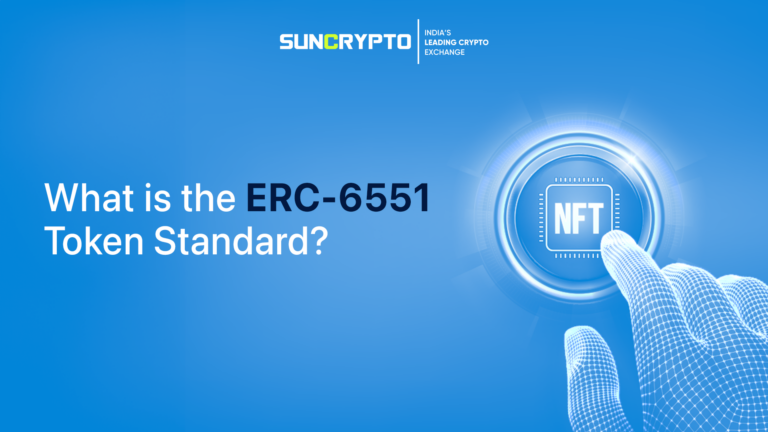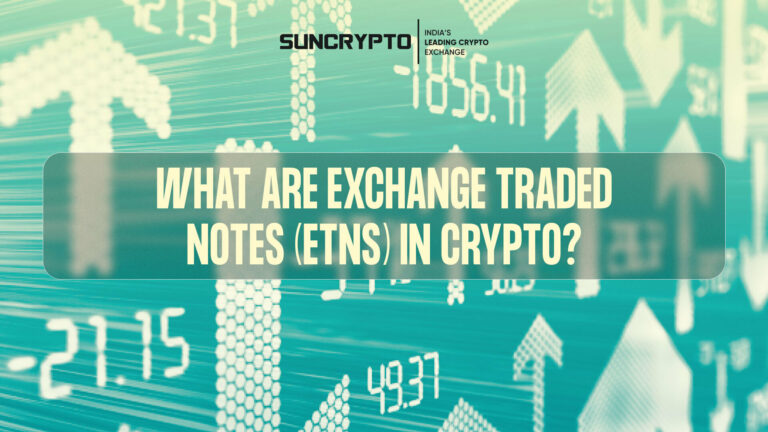In normal routine if we need some loan we go to the bank, if we need insurance we go to the insurance companies, but what if you don’t have to go anywhere and all the finance-related things can be done from one place and at home? Digital finance services like DeFi and CeFi have taken over the traditional methods in the last few years and are developing more with time.
What is DeFi?
Defi stands for Decentralized Finance which represents financial applications that are built on the blockchain. These platforms or applications are created using smart contracts, which are bits of code that specify the guidelines that the DeFi protocol must follow. This removes the need for any 3rd party while providing services like borrowing, yield forming, crypto lending, asset storage, and much more.
Users of DeFi smart contracts carry out actions similar to those they would carry out in conventional finance (or centralized crypto finance), such as borrowing money, making loans, or exchanging assets. The only difference is that everything happens directly without any middlemen, and everything is controlled by code.
According to DefiLlama, (which is a website that records the amount locked in DeFi), the DeFi industry controlled $69 billion in assets as of August 2022. By comparison, it was less than $1 billion at the beginning of 2020.
The majority of DeFi protocols communicate with one another using decentralized autonomous organizations, or DAOs, where owners of governance tokens (like UNI for Uniswap) make decisions on things like treasury allocations and tokenomics.
Transparency in decision-making and transactions through the protocol is provided through open-source blockchain explorers like Etherscan. Since DeFi is permissionless, anyone can use the blockchain-based financial applications that are available.
What is CeFi?
Private businesses known as CeFi firms specialize in working with blockchain assets like cryptocurrencies or NFTs (non-fungible tokens). They operate without open-source smart contracts (after all, they aren’t constructed on the blockchain), and they establish their own regulations in private, just like other private corporations. They communicate with users who are effectively paying clients.
How are DeFi and CeFi different from each other?
The decentralized exchange does not involve any exchanges. Automated applications built on top of blockchain platforms are used to run the entire process. But CeFi includes centralized exchange and that is responsible for all the buying and selling (trading) to happen.
DeFi is permissionless and transparent. But if you made any mistake like sending crypto to the wrong person you will be solely responsible for that. And no one will be there backing you up like in a centralized exchange. Also what if you lost your private keys you will be locked out without your crypto but in such situations, a centralized exchange can help.
In DeFi innovations happen quite fast, also you won’t have to do the KYC verification process you can just start buying and selling through your wallet. One of the biggest benefits of CeFi is that It makes it simple and easy to convert fiat money to cryptocurrencies and vice versa. It also makes cross-chain trade possible for several different cryptocurrencies.
In CeFi, the exchange is responsible for all the transactions but in DeFi successful transactions happen because of the Smart contracts. Smart contracts bind two parties in a contract with certain rules and regulations.
DeFi does not approve of certain services like cross-chain services, trading of light coinx, Rp coins, etc but CeFi provides you with these services as well.
Features of CeFi
- Centralized Exchange
For any beginner choosing the CeFi is a better option as it will give you more support in your crypto journey. It is much easier to use and gives a better user experience and interface, and you can actually get help as every exchange like Suncrypto itself provides support services when you face any issue. - Easy Fiat to crypto conversion
When converting from fiat to cryptocurrencies and vice versa, centralized services offer greater flexibility than decentralized services. DeFi services do not provide fiat with as much flexibility as centralized entities often do. For easier convenience, it is necessary to be able to convert between cryptocurrencies and fiat. - Cross Chain Services
Trading in LTC, XRP, BTC and other coins from independent blockchain platforms is supported through CeFi services. DeFi services do not support these tokens because doing cross-chain swaps is time-consuming and difficult. CeFi can solve this problem by obtaining custody of money from many chains. As many of the most popular and highest market capitalization coins exist on separate blockchains and do not adhere to interoperability standards, it is a big advantage for CeFi.
Features of DeFi
A fair and open financial system with open participation is another benefit of decentralized finance. The involvement of blockchain technology enables unbanked people to access financial and banking services.
DeFi seeks to create an ecosystem for financial services that is open-source, permissionless, and transparent. The decentralized financial system provides services like asset storage, yield farming, borrowing, and more.
In DeFi you have the whole control of your assets and cryptocurrencies and you get your own private and personal keys.
For more content related to DeFi and CeFi, check-out Suncrypto Academy.
Disclaimer: Crypto products and NFTs are unregulated and can be highly risky. There may be no regulatory recourse for any loss from such transactions. All content provided is for informational purposes only, and shall not be relied upon as financial/investment advice. Opinions shared, if any, are only shared for information and education purposes. Although the best efforts have been made to ensure all information is accurate and up to date, occasionally unintended errors or misprints may occur. We recommend you to please do your own research or consult an expert before making any investment decision. You may write to us at [email protected].





